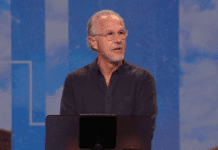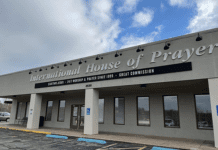“We open doors, offer shelter, pick up, hug, and live together with people whose immigration status is not an impediment,” Ortiz said.
Their congregation in DeLand, a suburb of Orlando, ranges between 50 and 70 people and is made up of members from Central America, Mexico, South America and islands of the Caribbean.
Ortiz, who also serves as the Latino field ministries director for the Cooperative Baptist Fellowship, said pastors will be raising their voices and challenging the governor’s immigration plans “in every way we can.” Churches, he said, employ people who cut their lawn and maintain their worship space without asking about their immigration status.
“We know that he (DeSantis) is trying to run for office as a candidate of the extreme right … and for that reason we are educating our people that he is a bad governor who is using our people for his own political tendency,” Ortiz said.
At Oikos, the Latino evangelical congregation that Carbajal pastors in Miami, there was a sense of indignation, frustration and fear among members as they discussed DeSantis’ immigration plans on Sunday.
“What’s going to happen if this goes through?” and “How is this going to directly affect us?” were among their questions, said Carbajal, whose congregation of between 20 to 40 people includes immigrants from Honduras, Nicaragua, Venezuela, Colombia and Peru.
As a pastor, Carbajal said it’s crucial to be informed on such policies, particularly because many of his congregants believe that immigration is solely a federal issue. They’re not fully aware of state measures and, on top of that, there’s a lot of misinformation among Christian communities, Carbajal said, adding that it’s part of his job to help inform them.
Carbajal said pastors must recognize that their position on immigration issues “does not come from our level of political understanding, but from our understanding of the gospel and biblical justice.”
“Any position that contradicts the gospel of welcoming and providing for the foreigner, we need to speak up and proclaim our opposition to it,” he said.
This article originally appeared here.











